Coverage of last week’s regional security conference in Guatemala City was dominated by U.S. Secretary of State Hillary Clinton’s announcement that the U.S. intends to spend some $300 million helping Central American governments combat drug-related violence. While the announcement might be considered politically delicate, given the growing unpopularity in Mexico of similar U.S. assistance in recent years, it also raises the question of how much Central American nations may be willing to match the U.S. commitment. “What you see is that Central America governments’ own investment doesn’t match the magnitude of the problem, particularly when it comes to dedicating resources […]
U.S. Foreign Policy Archive
Free Newsletter
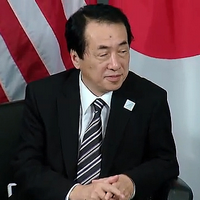
The triple catastrophe represented by Japan’s March 11 earthquake, tsunami and nuclear emergency has thus far had two main effects on Japan’s national security policies. First, the crisis has focused the attention of Japanese security managers inward toward domestic humanitarian assistance and disaster relief operations. Second, it has reinforced the Japanese-U.S. alliance, which had already been strengthened by the Japanese government’s decision to abandon its earlier quest for a more independent security policy in light of increased external threats from the East Asian mainland. Given this increased salience of external threats, Japan’s earthquake-induced domestic preoccupation may prove to be of […]
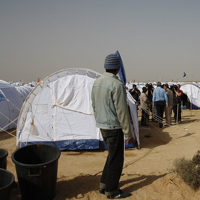
When do humanitarian crises resulting from internal conflicts merit international military intervention? Despite the formal international consensus endorsing an international “responsibility to protect,” there is very little agreement on when armed intervention in another state’s internal conflicts is justified and appropriate. Even among Western nations, where support for this concept is strongest, there is no general agreement as to what ought to trigger international intervention. The ongoing U.S. and NATO military intervention against the Libyan government has become the first test case for the responsibility to protect (R2P) doctrine since U.N. member states approved it in 2005. However, the manner […]
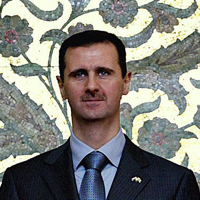
Recent polls indicate that a majority of Americans and Europeans don’t want NATO to widen its war against embattled Libyan leader Moammar Gadhafi. So long as the West’s low-and-slow approach to regime change continues to weaken the dictator, there is good reason to stick with President Barack Obama’s strategy of limited intervention. Yet as international cameras focus in on Libya, a prospective tipping point for the future of the Middle East becomes all the more visible in Syria, despite that country’s ban on international journalists. And although Secretary of State Hillary Clinton has taken an admirably tough line regarding the […]
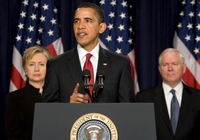
President Barack Obama’s speech Wednesday evening announcing America’s policy toward Afghanistan in the coming year is another manifestation of his “Just Enough” doctrine, by which he takes “only those steps that are likely to produce a satisfactory outcome, rather than guaranteeing an optimal one.” It helps, of course, that Obama’s December 2009 West Point speech announcing the Afghanistan surge did not set very strict criteria for U.S. success. In his remarks two days ago, he reiterated those benchmarks: a U.S. effort designed “to refocus on al-Qaida; reverse the Taliban’s momentum; and train Afghan Security Forces to defend their own country.” […]
In thinking about the trajectory of President Barack Obama’s approach to the Afghanistan War, from the initial March 2009 strategy review to the December 2009 troop surge to last night’s address, it occurred to me that, when it comes to the politics of the war, Afghanistan has gone from being the “Good War” to being what is now the “Subprime War.” The administration’s initial March 2009 review was the equivalent of a “nothing down” mortgage. As I noted at the time, it threaded a political needle, articulating a strategy — a counterinsurgency approach to counterterrorism — that allowed everyone to […]
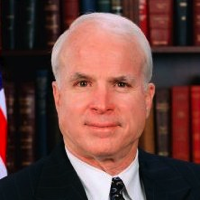
Sen. John McCain is worried about the direction of U.S. foreign policy, especially within his own party. Some Republican presidential contenders have questioned the nation-building mission in Afghanistan. Others point out that the undeclared war in Libya is neither necessary nor constitutional. “This is isolationism,” an aghast McCain declared on the ABC News program “This Week.” Isolationism? The term “isolationist” is little more than a slur. It essentially means someone who thinks the U.S. should engage in fewer foreign wars than the speaker does. The term emerged in the late-19th century, when it was made popular by the ardent militarist […]
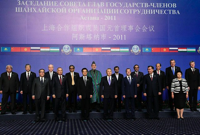
The Shanghai Cooperation Organization (SCO) celebrated its 10th anniversary last week, with the leaders of its six member states gathering in Astana, Kazakhstan, for the occasion. In addition to assessing the achievements of the organization’s first decade, SCO leaders also considered the applications of Pakistan, India, Mongolia and Iran for full membership. There are now increasing indications that India and Pakistan might be admitted, although not before next year. Nevertheless, admission of these two nations could alter the mission and global relevance of the SCO as a regional multilateral organization. The SCO was initially created as a security pact to […]

It is tempting to view the Obama administration’s new cyber strategy as the creation of yet another “conflict domain” to worry about in U.S. national security. Thus, in our enduring habit of piling new fears on top of old ones — nuclear proliferation, terror, rising powers and failed states, among others — we imagine yet another vulnerability/threat/enemy to address with buckets of money. In truth, the strategy document is just our government finally acknowledging that, as usual, any fruitful international dialogue on this subject awaits the first move by the system’s most advanced military power. The same stalemate exists in […]
It has been roughly 90 days since the Libyan intervention began, and roughly 89 that it has been criticized for being a demonstration of strategic and operational incompetence. It has also been used as proof of the demise of everything from U.S. leadership to Europe’s expeditionary capabilities to NATO’s viability as an alliance. There’s something very familiar to me about this kind of over-the-top reaction: I recognize it as my own following every U.S. intervention of the past 20 years. There is perhaps nothing more maddening than watching one’s country engage in a war that one does not believe in. […]

The Obama administration appears to be in the throes of yet another debate about the long-term U.S. commitment to Afghanistan. Inside the administration, officials are weighing not only the material costs of remaining in Afghanistan, but also the political and bureaucratic implications of continuing the war. Undoubtedly, some are asking the question, “What would a withdrawal from Afghanistan say about the United States?” Some might answer that a withdrawal would embolden America’s enemies and indicate that the United States is both weak and unwilling to stand behind its friends. The late, esteemed George Kennan suggested another interpretation of such a […]

Although the United States has been using private contractors in one way or another since the founding of the country, it is the experience of the past decade, since the Sept. 11 terrorist attacks, that has focused attention on private military and security contractors (PMSCs) to unprecedented levels. The U.S. Defense Department and State Department, as well as other U.S. agencies and other countries, have used contractors in Iraq and Afghanistan both for logistics work, which accounts for the vast majority of contractors, as well as for much more publicized, but numerically far smaller, security roles. As a result, even […]
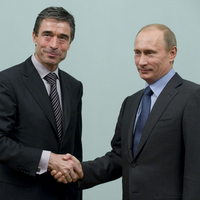
During the Cold War, the U.S. installed 7,000 nuclear weapons in Europe because of the perceived military imbalance in favor of the Soviet Union. European governments, unlike their publics, accepted them with the understanding that free riding in a military alliance had its limits. But these tactical nuclear weapons, some of them much more powerful than the Hiroshima bomb, led to regular friction within NATO. Since the implosion of the USSR and the Warsaw Pact, more than 90 percent of these weapons have been withdrawn, silently and unilaterally or in a reciprocal way. Today, a total of 200 weapons remain […]

Coverage of last month’s Group of Eight summit in Deauville, France, centered on the leadership crisis at the International Monetary Fund and measures to support new regimes in the Arab world. However, the summit’s most significant achievement may be the dramatic change in Russia’s stance on the conflict in Libya. After months of Russian ambivalence toward the military intervention against Col. Moammar Gadhafi, Russian President Dmitry Medvedev not only joined the other G-8 leaders in a statement declaring that Gadhafi has lost all legitimacy and must step down, but also announced that Russia would help mediate an exit for the […]
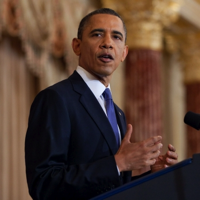
When President Barack Obama took the podium at the State Department to outline Washington’s new policy framework for the Middle East several weeks ago, he unleashed a storm of controversy that caught many people by surprise. The speech sought to outline a new American stance toward the unfolding changes in the Arab world. But the controversy centered instead on the president’s statement regarding the decades-old conflict between Israelis and Palestinians. When Obama called for a return to negotiations “based on the 1967 lines with mutually agreed swaps,” he sparked a furious, if rather unusual dispute. On one side, the president’s […]
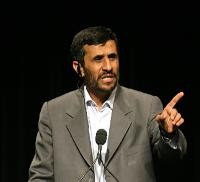
As the United States debates just how much more effort it wants to put into the Afghanistan-Pakistan sinkhole, evidence mounts of the need to pursue a strategic pivot back toward the Middle East, where the Arab Spring is increasingly threatened by a Persian winter of revolutionary discontent. For some time now, Iran has been showing signs of mounting internal divisions between competing hardline factions led by President Mahmoud Ahmadinejad and the Supreme Leader Ayatollah Ali Khamenei. But it has also become more desperate about asserting its alleged leadership of the region’s ongoing wave of uprisings, including a far more active […]
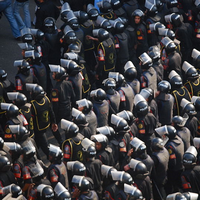
In March, the Stimson Center released a report (.pdf) by Gordon Adams and Rebecca Williams reviewing U.S. security assistance programs. Titled “A New Way Forward,” the report argued that the United States should restructure its security assistance programs away from “security,” as defined in Cold War terms, and toward “governance,” which more accurately reflects U.S. interests in the post-War on Terror world. The difference is hardly trivial. “Security” assistance focuses on improving the tactical and operational capabilities of fielded armed forces, whether against domestic or international foes, while “governance” assistance aims to “strengthen state capacity in failing, fragile, collapsing and […]
